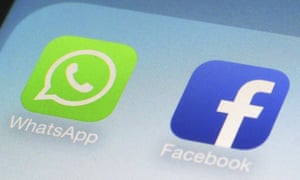"Does your case study suggest that new and digital media have had a
positive impact by offering audiences a more diverse range of values and
ideology?" [48 marks]
The internet or new and digital media itself can be a big platform for
users to share and contribute to the values and ideologies they believe or
challenge, this allows the internet platform to offer a diverse range as this
can come from any person from anywhere, whether this has a positive or negative
impact, this will be something that I will be discussing.
A Marxists would argue that as they believe that
even though audiences are in power in terms of users sharing different and
diverse range of values and ideology; the impact is nothing and yet to be seen
as a negative thing. Marist tend to to reinforce the role of media in the
reproduction of the status quo. Gramsci’s theory of hegemony would
reinforce this as it states that dominant ‘media conglomerates’ feed audiences
the necessary information. It
suggests that audiences are not empowered through the development of new and
digital media as the dominate and higher class "rule and control" the
media. An example of this, is the Arab Spring revolution in 2011, this was a
protest for democratisation that that agreed with the pluralists views, as
audiences took to Twitter to voice their opinions about this. However, an
Marxists would argue that even though audiences had done a protest and took to
social media to voice their opinion, no changed happen, the result of all the
audiences taking part, nothing changed in the media. So even though new and
digital media have given audiences a platform to share their values
and ideologies that they really feel something strong about, the
new and digital media would allow a change to happen because of
the elite being in control.
A pluralists would argue that institutions
would allow us as audiences be more involved in the media and news
especially, the option of online comments under some news issues allow
the audiences to have their point and opinion across to
the professionals but other viewers to engaged themselves with and
have a discussion with, if they agree or disagree, this allows
more diverse debates and issues to comment and discuss about. This
supports the pluralists view about how the new and digital media is
a positive platform that encourages audience to share their own
values and ideologies. Audiences are seen
as capable of manipulating the media in variety of ways according to their
proper need and dispositions, it will be enabling them to 'conform,
accommodate, challenge or reject' (Gurevich et al) this theory suggest that the
classless society can do this. An example of this is through UGC. Through the
use of new and digital media, audiences are becoming more active, they are
willing to challenge the powerful, in terms of UGC, audiences are using social
media sites such as Twitter, and using trends and hashtags to raise awareness
about issues to a wider audiences; audiences are taking control and being
powerful to how they are questioning the powerful. The audiences are using new
and digital media to their advantage, speaking about ideologies and values
that wouldn't be challenged or spoken about till new and digital
media was developed, examples such as police brutality.
Citizen journalism has become an importance from the developments in new
and digital media; posts and hashtags trends have allowed issues to become
popular and raised to wider audiences. For example, one of many powerful
movements online was the “Blacklivesmatter” this was one of the social media
campaigns that engaged a lot of diverse communities especially the black
community to come together to raise awareness about police brutality, people
had all shared their opinions about this issue through a lot of different ways,
the hashtag allowed this matter to come heard off, protests had started, but
people also posted up their own videos sharing police brutality happening in
their areas, despite however many diverse and different values and ideologies
are shared on the intent, on an issue that is important, users of the internet
do try to make it so it has a impact at least of the internet but also hoping
it makes a change in the world too.
However, there is also a side when new and digital media has offered
audiences to share their values and ideologies and that is through Youtube.
Within Youtube, “vlogers” and “youtubers” have been growing since the
developments of the digital media, of course, youtubers create and share their
own content, which is UGC, to their millions of viewers, they are expressing
their own values and ideologies. This can have a negative impact at times
because those values and ideologies can be harmful and can send out a wrong
message. A Youtuber called “Sam Pieper” was blocked and alerted that he couldn’t
use his youtube account because of all the negative reports that had been
filled out against him, he had very sexual content that didn’t treat females’
right, very disturbing to watch. Thankfully new and digital media has enough
control to take over when something has a negative impact on the audiences.
However, within the Internet, users of the Internet are exposed too a lot of
things, a lot of audiences are using the internet for their own advantage, in
particular within news, or even new related stories as well as videos of such
vital but extreme behaviour can be shown on the internet without it being
censored, graphic images and posts are visual for a lot of the audiences, this
can have such a negative impact because it desensitises audiences, especially
the younger audiences as they are the main audiences of the internet, there is less censorship and
fewer gate keeping than traditional media, digital media does offer audiences a
platform for diverse range of values and ideologies but some people do take
advantage of it as use it negatively which then impacts the internet overall.
However, new and digital media can have a
positive impact by offering audiences a more diverse range of values and
ideology is because of globalisation. The internet is like a “global village”
shows like The Simpsons or even Keeping Up With The Kardashian are being
watched and spoken about globally, developments of the interment such as
“memes” have also caught the attention of a lot of users on the internet
globally, where users are getting on the same trends or talk about the same
things because users can get influenced very easily online as well as believe
things every easily, this can make audiences seem like they are more passive
than active. The new and digital media may offer a lot of diverse and
alternative values and ideologies, but uses catch on very quickly and therefore
can share a lot of similarities with each other but can be diverse due to the
cultures some audiences share or where they are in the part of the world. Passive
audiences believe things very quickly without double-checking the facts and the
resources, which can have a negative impact, fake news is rising and becoming
an issue on the internet especially on social media sites; Facebook is in
pressure of controlling their users to not post any fake news because that’s
where it has started from. This has given the internet such a negative impact
because it shows that yes audience’s may be in control in certain things and
other things is the elite but are they really protecting the audiences and
offering a positive platform for audiences to share their values and ideologies
no matter how diverse they are? I don’t really think so. The control is to wide
and can be with anyone to be fair.
Overall I think that there are some case
where the new and digital media can I have positive impact by offering
audiences a more diverse range of values ideologies as a lot of users of the
internet can understand and learn new things online about things but I think
there is more negatives and then the positives of new and digital media
offering audiences a more diverse range of values and ideologies, and the main
reason is because of the control that has been spread out and can’t be limited
as the internet is so advanced, users are knowledge enough to know how they can
use the power to their advantage.
/cdn0.vox-cdn.com/uploads/chorus_image/image/54880203/20161017-reed-hastings-netflix.0.jpg)



